Does Te Matatini Competition Need Revamping?
It's Te Matatini season, a celebration of our extraordinary and unparalleled cultural performing arts expressions, the national competition for Kapa Haka, and the jewel in the crown of cultural sovereignty since the first competition in 1972.
Cut to 2023, and the festival plays out for the first time in 20 years since Te Matatini last screened exclusively on TVNZ, the national broadcaster, and the largest anticipated television audience ever.
Te Matatini was cancelled as a biennial event throughout the pandemic so the desire to return to the stage is at fever pitch - understandably - as kaihaka performers seek their opportunity to showcase their skills to appreciative whānau, die-hard kapa haka fans and new audiences being exposed (if you managed somehow to live under a rock here in Aotearoa).
This year, Te Matatini plays out at Ngā Ana Wai Eden Park, in the rohe of manawhenua Ngāti Whātua ki Ōrākei. Already the pōwhiri sends ripples throughout Māoridom with the denouncing of the Kingitanga and Kingi Tuheitia leaving. Politics play a huge part in the competition's platform, where iwi aspirations assert in many ways.
Most Māori communities recently impacted throughout the country through flooding and Cyclone Gabrielle are somewhere between partial to complete rebuilding after being devastated by the potent effects of climate change on infrastructures that are unstable and unexpecting this level of national emergency.
Paramount in people's minds was whether this would lead to the cancellation of Te Matatini again, which continued to work towards providing surety of staging.
Critical thinking
On social media, I published a series of statements within the relative safety of my Facebook page to gauge and provoke a space for critical thinking about issues that come forth.
"Unpopular opinion, but I'd like to see the competitive part be dismantled to really bring through the fierceness and resilience of our community through participation and hauora".
"I think the reasons for Te Matatini competition have become outdated and the festival could look at what this platform needs to serve now in a less pageant-like way. We shouldn't be afraid to shake and transform our own paradigms".
"Whilst gathering has been complicated through pandemic, it is problematic now through ethic for our cyclone affected communities – it would be amazing to see Te Matatini shift its focus from internal to external to assist fundraising".
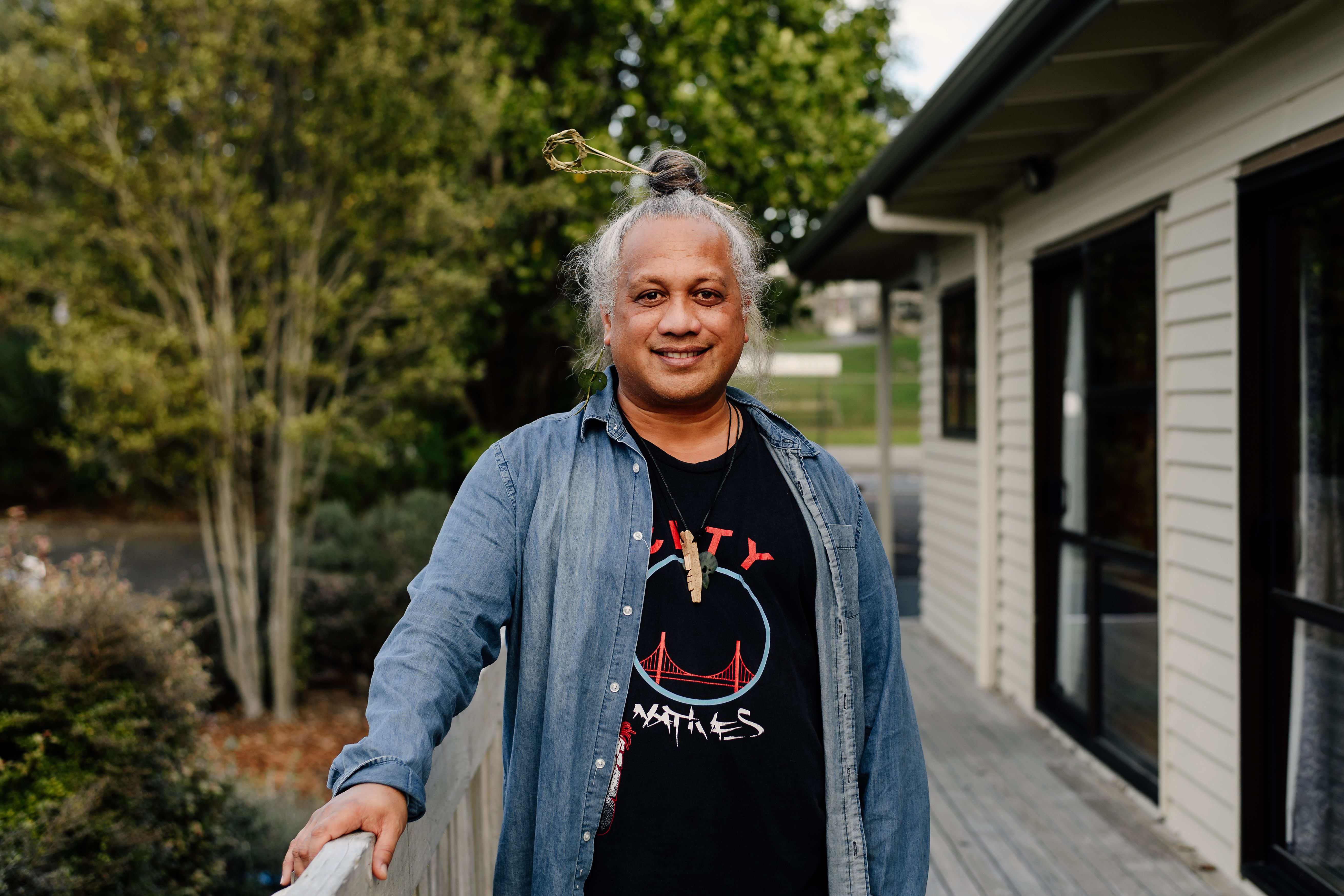
Jack Gray. Photo: Jinki Cambronero.
The reactions range from people saying they also align, to people who support the outcomes from competition to determine success, to people suggesting we could also have non-competitive and competitive festivals.
To unpack, I am coming from my perspective of #wakingupmāori everyday, in the ways that unfold and interact with my daily life and all that is involved. I am a contemporary dance specialist who looks at multiple ranges of applications from community wellbeing, to cultural research and revitalising, to global inter-Indigenous activation to non-performing arts spaces (i.e., hospitals) such as helping whanau through their hauora journey - which encompasses navigation of systems that often do not sit within the paradigm of Te Ao Māori.
My positioning of a contemporary embodiment focus primarily concerns the Māori relationship to intergenerational trauma response and aims to produce empowerment and autonomy.
I believe in kapa haka as a conduit for tino rangatiratanga, in ways that extend far beyond the parameters of a 20-minute competitive 'bracket' - a set of defined activities that are judged (officially and unofficially) and used to determine the champion for that year.
The top team takes their place in the esteemed legacy of previous 'winners.' It influences the Māori world, inspiring through a wide range of ways, primarily the transmission of culture that comes from sentimental reflection and repetition of the songs and words and favourite performers that are joyfully argued about by Māori, who can remember past festivals through the televised replay.
In short, I love kapa haka differently than others love kapa haka, and that is all good.
However, we are in alliance with the need to practice our cultural ways through the return of our reo, now significantly embedded in our society further than ever in our post-colonial historical framework.
From lip service to live streaming
Over the years, kapa haka has modified aspects that show a growth in consciousness since humble beginnings. For example, the industry of Māori broadcasting has transformed elements of accessibility by contextualising a digital space that holds Māori at the centre.
I didn't grow up with Māori Television but was used to seeing cultural programming relegated to Sunday mornings. I was of the generation where we would videotape the weekly one-hour show of the Māori Performing Arts competitions so I could learn the songs and copy the choreographed movements holding a broomstick as a taiaha like the majority of most Māori.
However, with Youtube and online resources now widely available, the educational purposes behind being connected to kapa haka have spawned many other facets of how this form is both an influencer and an advocate.
I have enjoyed the evolution of the form over the years, noticing the shifts in trends where the judging determines the tastiest flavours of any given competition.
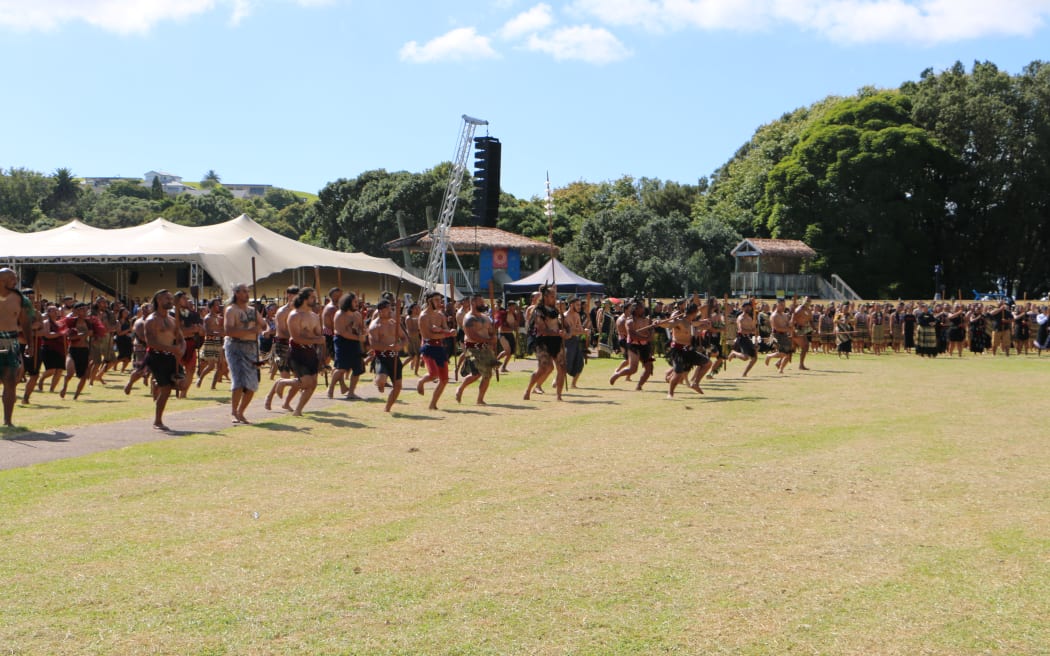
2023 Te Matatini underway. Photo: Shannon Haunui-Thompson/RNZ.
One year it might be a beautiful operatic style that wins; another year, its traditional weaponry that takes the eye of the judges, or it could be a unique garment that sticks in mind; it could be the energy of the youth or the class of the elders that get the nod. Kapa Haka performers have branched out into the music industry, and the ongoing normalisation of Te Reo Māori which is hugely important and exciting.
Another fantastic result of sustained cultural legacy is that groups are holistic in their embodiment of the work required to get to the stage. Physical fitness has become the norm, emphasising stamina-based training, specific diets, and gearing up for that performance moment before the judges.
The influential nature of social media brings the lived experiences of kaihaka to the masses in ways never seen before. The fandom's fervour reflects how Māori claim this competition as our own. Get them gains whanz!
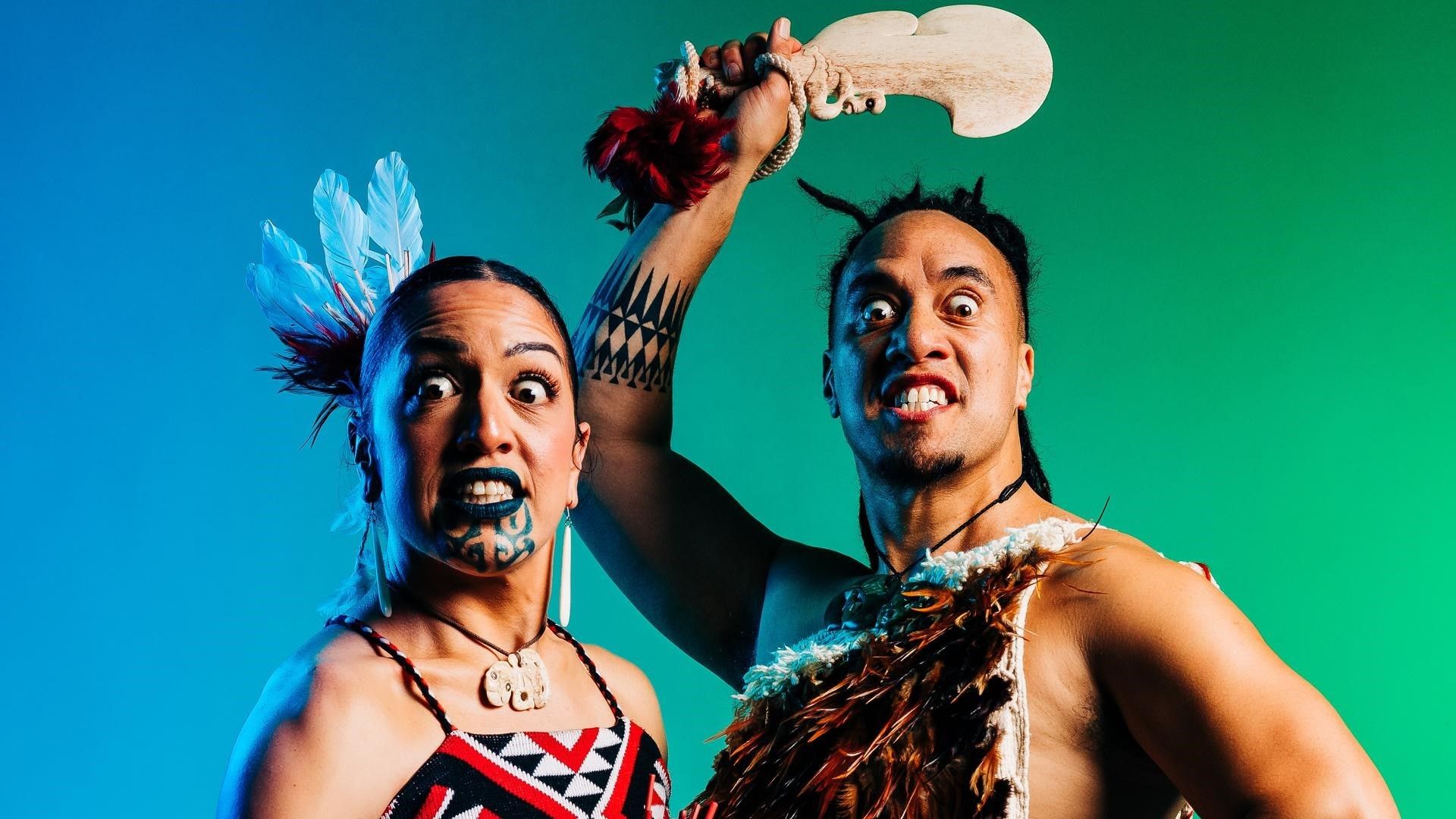
Te Matatini getting the promo treatment on TVNZ. Photo: TVNZ.
As people have commented they think competition leads to discipline and results, it makes me question whether we would stop trying to run fast as a species if the Olympics took away the race medals?
The joy of engaging in witnessing bloodbaths have been since time immemorial (I was initially thinking of the Colosseum) so there is a voyeurism somewhere inside that make sport and competition relevant. And don’t get me wrong I love competition - but I’m starting to think that times change, so what can a new format look like?
With all of these social influences, it is likely that critically thinking aloud can come across as negative or unsupportive. For example, I'm still reeling from the reaction Māori had regarding my commentary about Lorde's positioning of her Te Reo album. People saw that as anti-Māori, which was gutting but also powerful in other ways. It demonstrated the importance of having a voice, standing up for my beliefs.
Writing this piece about Te Matatini - and questioning whether a way to move around the complexities of value maintenance in identifying where the immediate needs of our communities are - sits in the space of gentle contemplation and hope.
Could more be done?
With the decision to stage Te Matatini, I want to apply an ecological consideration for what it means to gather in this post-pandemic environment. What does it mean to produce this cultural effigy in the aftermath (and continuing) rebuild of our communities at threat of natural disaster?
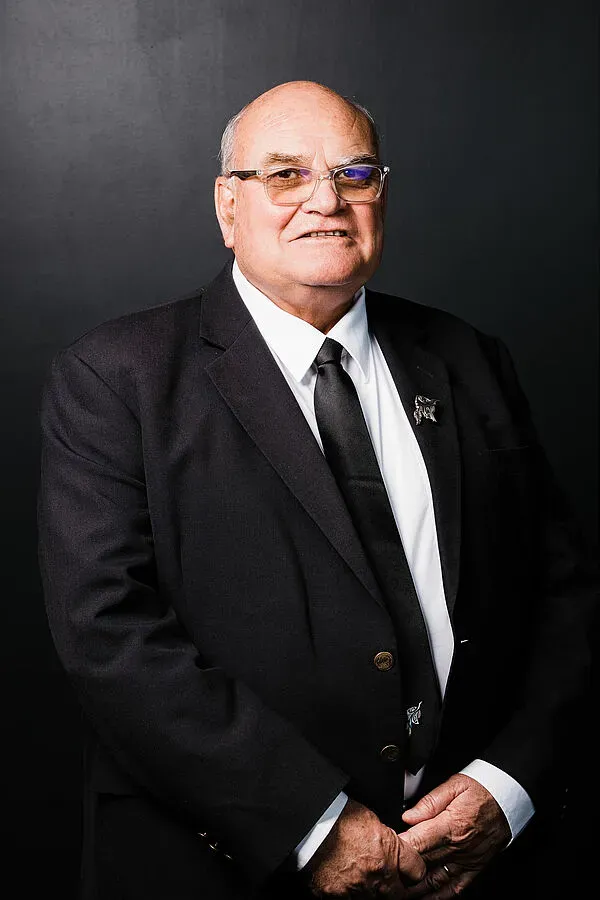
The claimed desire by Te Matatini chairperson Selwyn Parata (above) is to reveal the pulse of the Māori nation "as an incredibly important environment for Māori to raise awareness around the issues that directly affect them." In this case, I question aspects of manoeuvring that have come as a direct result of living through COVID-19 and unforseen weather events; what immediate responses can occur to provide awareness nationally?
Fiscally, Te Matatini requires funding to stage in the first place, so tickets still maintain the economical parameters of playing out. Kaumatua and Kuia are charged $40 a day to attend. So Te Matatini requires bums on seats (or blankets) to operate.
What could fundraising for affected communities look like, and how possible could Te Matatini have been a platform for supporting in these other ways?
It brings into question the idea that Māori should support Māori, and I question how the labour involved (in some practical ways, including kapa haka teams figuring out how to even get to Auckland from some of their impacted locations) is even fair and equitable in a competition setting.
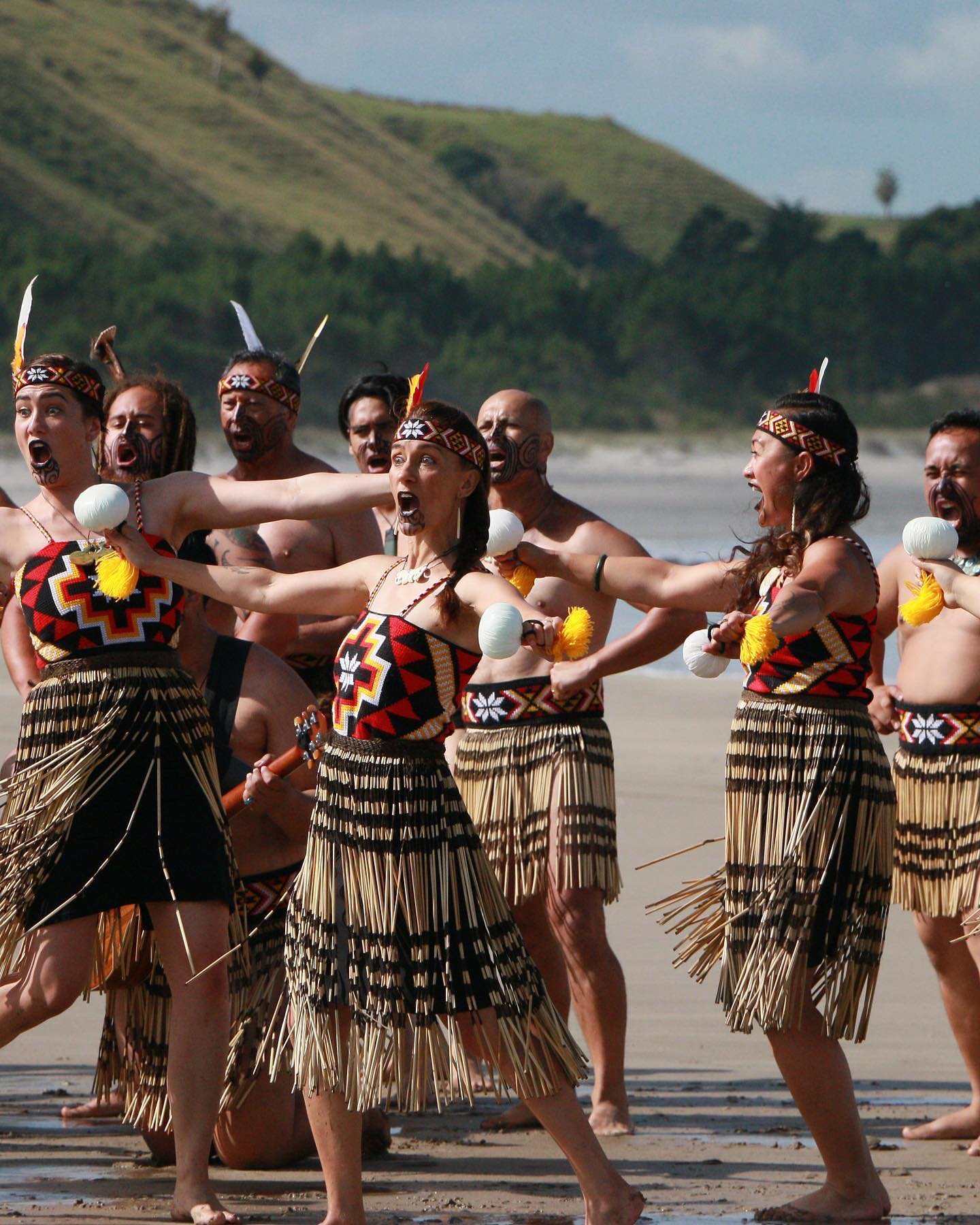
Whāngārā Mai Tawhiti. Photo: Shaan Te Kani.
Could Te Matatini be pivoted to take advantage of the expected large-scale audiences as a national fundraising drive? How could this platform surpass the physical stage to wrap around the ailing Te Ika a Māui?
(Note: there is a Givealittle page that Te Matatini started just prior to the event.)
I understand the cultural importance of Te Matatini and what it spiritually strengthens collectively. But my questions probe whether this is a time for competitiveness as a fundamental essence of restoring social justice now?
In exploring why we mentally fixate on resolving our trauma, have we forgotten to update the page, or are we still in that place of self-justifying our culture?
From a competition perspective, does kapa haka only exist within these confined rules and regulations, and would that cease to produce interest in the participants if Te Matatini could live outside of non-capitalist production of performance (AKA advertisers' dollars on television broadcasting)?
There's so much to kōrero about managing the Māori multiverse, but currently, I'm also watching Te Matatini on TV right in front of me whilst drinking a McDonald’s flat white that arrived by Uber Eats as a technician tries to restore my fibre connection to the Internet - so instead, I give all my admiration to the talented kaihaka we have in our culture (seen and unseen).
And I hope we continue to be courageous and creative, moving conversations onwards half a century after proving we could stand on our own stage.
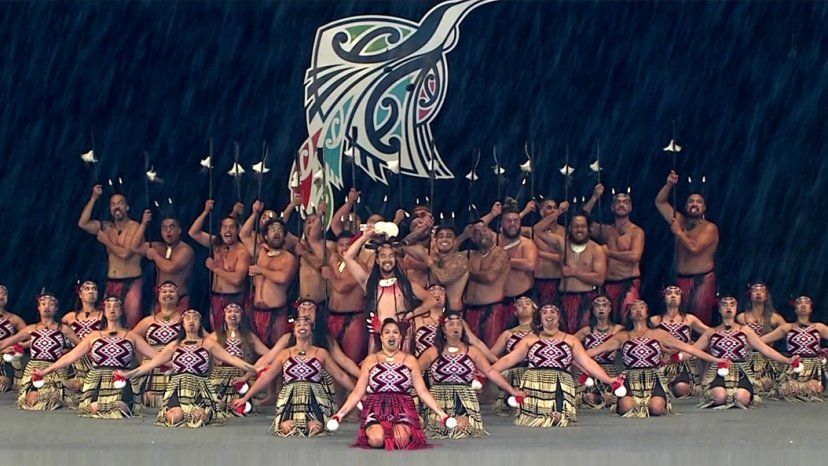
Kia kaha whānau, good luck to the teams and the eventual 2023 winner. Will it be a back-to-back for reigning champs, Ngā Tūmanako (above) from Hoani Waititi Marae (I'm a westie in the hood from way back). Will perennial runner ups and local rivals Te Waka Huia break their 10-year hoodoo? Will a first-time out-the-gate team bust out from Hicksville to stamp on the expectations of history? Will there be sweet justice for one of the teams from the impacted regions who prove us all wrong and show that competition is a path to resilience?
No one knows, but seeing as it’s happening, we may as well tune in to see.
Whāngārā Mai Tawhiti leader Sir Derek Lardelli interviewed on tv after their performance and asked how it was to come from Te Tairāwhiti said humbly: “We are getting through this no matter what”.
Te Matatini Herenga Waka Herenga Tangata will be broadcast live on TVNZ 2 and live streamed on TVNZ+ throughout the three preliminary days (Wednesday 22-Friday 24 March) and finals day (Saturday 25) and will be available on TVNZ+ for catch-up viewing.